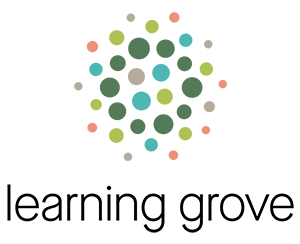Affordable, quality afterschool programs keep kids safe, inspire them to learn, and support the needs of today’s working families. Yet, in Kentucky, for every child in an afterschool program, four more are waiting to get in.
Overhauling Kentucky’s child care regulations so they meaningfully address the needs of programs and providers serving school-age youth aged 5-12 is critical to expanding access to afterschool for Kentucky families, according to a new fact sheet from the Kentucky Out-of-School Alliance (KYOSA).

As the fact sheet explains, all states must have minimum licensing requirements that apply to programs serving children, including afterschool programs, but these requirements vary greatly from state to state. In Kentucky, like many states, some afterschool programs must have a child care license to legally operate, while others can legally operate without a license, such as if they operate for less than 20 hours per week or are regulated by another agency. A complete list of child care settings that are exempt from child care licensing in Kentucky can be found in Section 3 of 922 KAR 2:090 – Child Care Licensure.
But, under Kentucky’s current regulations, only licensed programs that participate in the state’s quality rating and improvement system (QRIS) can serve families receiving public child care assistance, which includes Child Care Assistance Program (CCAP) subsidies and state matching funds from Kentucky’s new Employee Child Care Assistance Partnership (ECCAP) Program, launched earlier this year.
“Federal COVID-relief funding has made more Kentucky families eligible for child care assistance over the past three years,” said KYOSA’s Executive Director, Tom Haggard. “But this funding has not done much to expand access to school-age care, because there are not enough licensed afterschool and summer programs in Kentucky to meet the needs of all families with school-age children who are eligible for CCAP and ECCAP.”
There are currently 1,283 child care providers in Kentucky that are licensed to serve school-age youth, with 86% reportedly accepting subsidies. But, in reality, these numbers are likely much smaller than what is currently reported in the system.
Many early childhood programs get licensed to serve all age groups (infant through school-age) when they apply for initial licensure but may not actually be providing school-age care since that information is not tracked by the state.
The fact sheet also shows how few licensed school-age child care providers there are in rural areas of the state, with many counties in eastern and western Kentucky having no licensed school-age child care providers at all. This is especially concerning considering many of these counties have struggled for decades with persistent poverty and workforce participation.
School-age programs that fall into an exempt category can opt into licensure to serve families utilizing child care assistance for school-age care, but they often do not because many of Kentucky’s child care regulations are not appropriate for afterschool and summer programs. For programs that are regulated by another organization or agency, such as an afterschool program operated by a public school under the purview of the Kentucky Department of Education (KDE), becoming licensed also means having to adhere to two sets of regulations that may be duplicative or conflict with one another.
“As an afterschool program in a public school district, we already have a long list of requirements set by KDE that we have to follow, from how we vet employees, conduct emergency drills, and provide professional development,” said Scott Taylor, who manages afterschool programs for Daviess County Public Schools. “Licensing just adds another layer of complexity that includes more rules and requirements that are often duplicative or not feasible in a school setting.”
Affordable, quality afterschool programs benefit everyone – children, families, businesses, and communities – by providing a safe and engaging environment for kids when school is out so parents can work. But to expand access, Kentucky’s current regulatory system must be overhauled so more afterschool and summer programs will want to obtain licensure, enabling them to serve families utilizing CCAP and ECCAP.
To help accomplish this, KYOSA has been working with a diverse group of school-age child care stakeholders from across Kentucky to develop a set of policy priorities and actions necessary to reform Kentucky’s child care system to better meet the needs of all providers and age groups served. In January 2023, KYOSA released a document, Kentucky’s Roadmap to Quality School-Age Child Care for All (2023- 2025), which makes the following recommendations:
1. Ensure school-age child care is represented at decision-making tables.
2. Address school-age needs in state child care regulations.
3. Encourage quality school-age child care environments.
4. Create a thriving school-age child care workforce.
5. Improve state-level data on Kentucky’s school-age program landscape.
Visit the website to learn more about the importance of school-age child care, current school-age child care policy priorities, and what you can do to help.
Kentucky Out-of-School Alliance



















